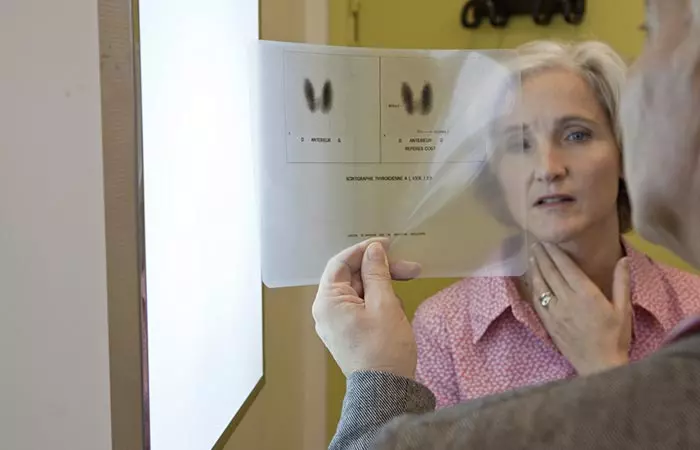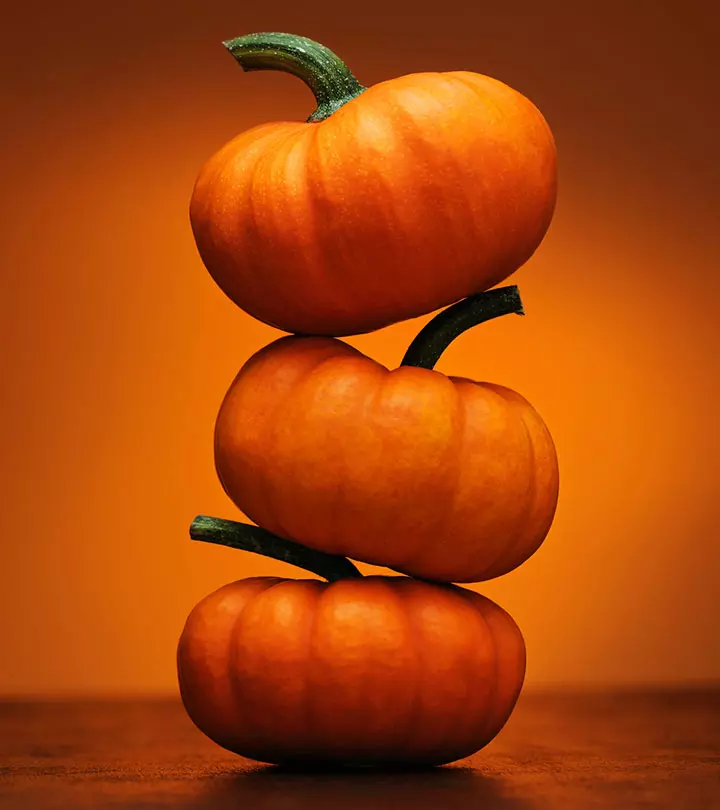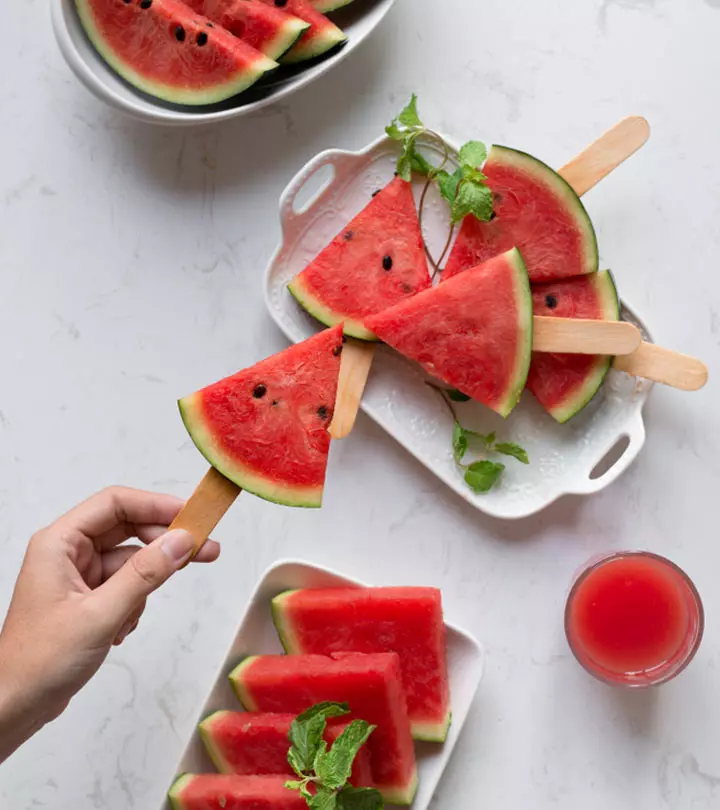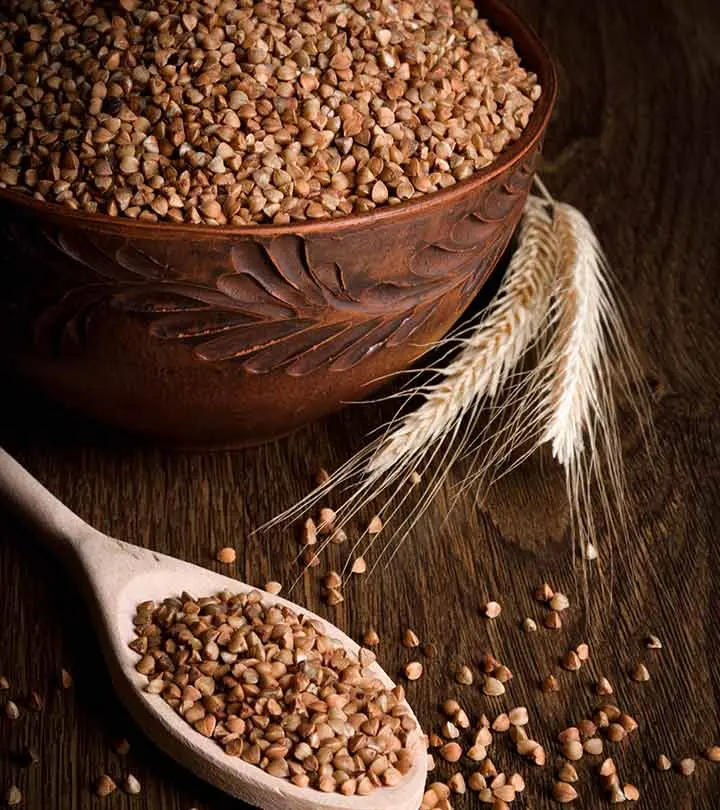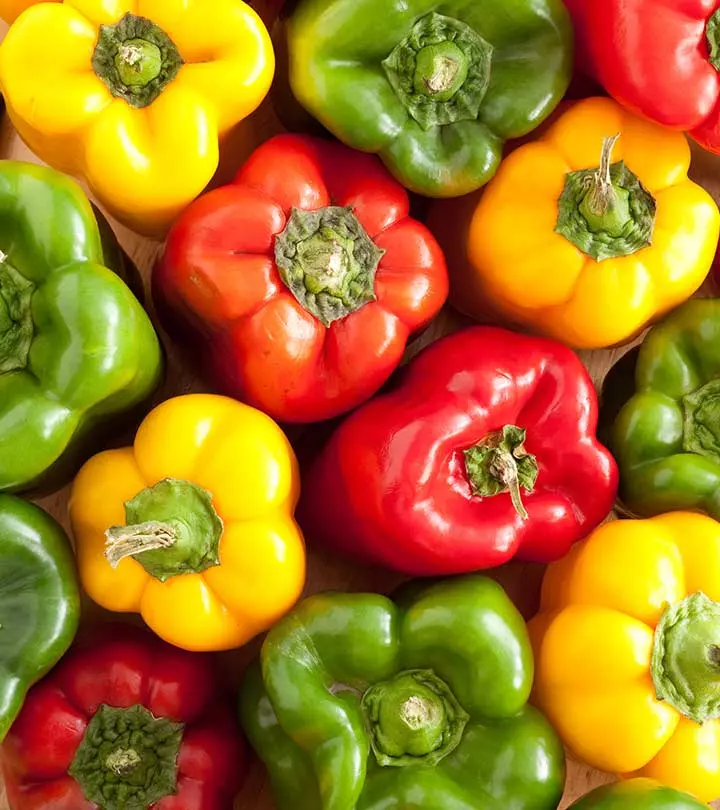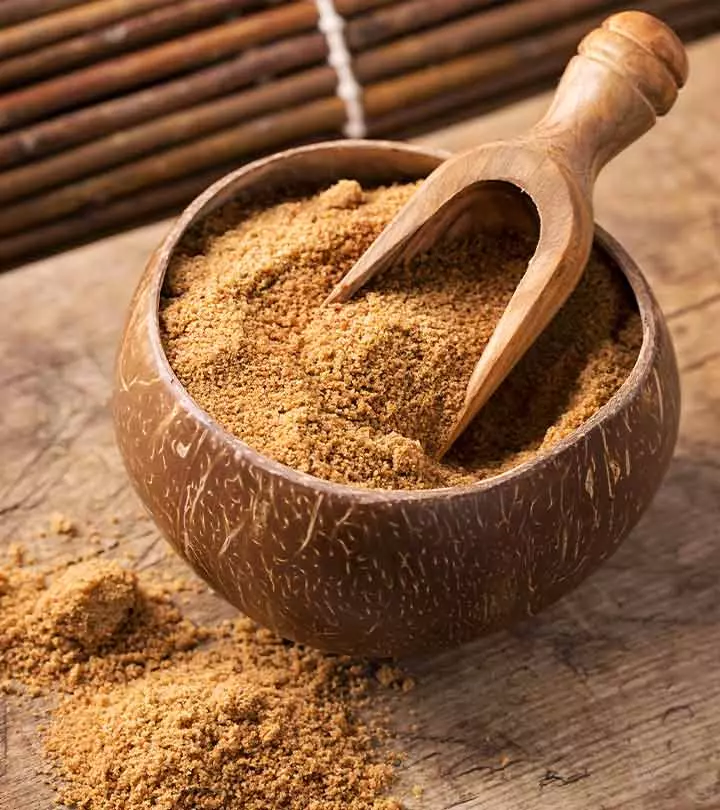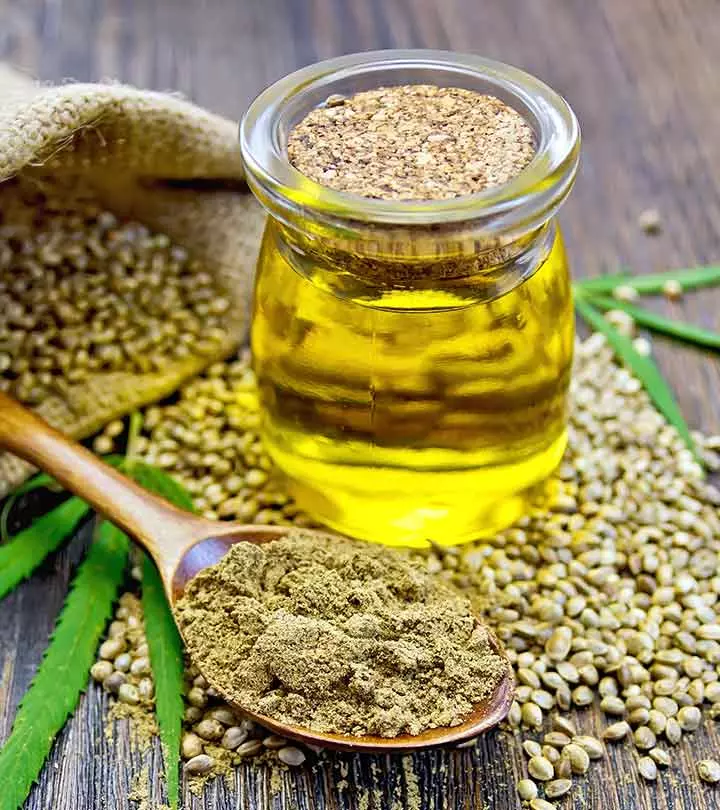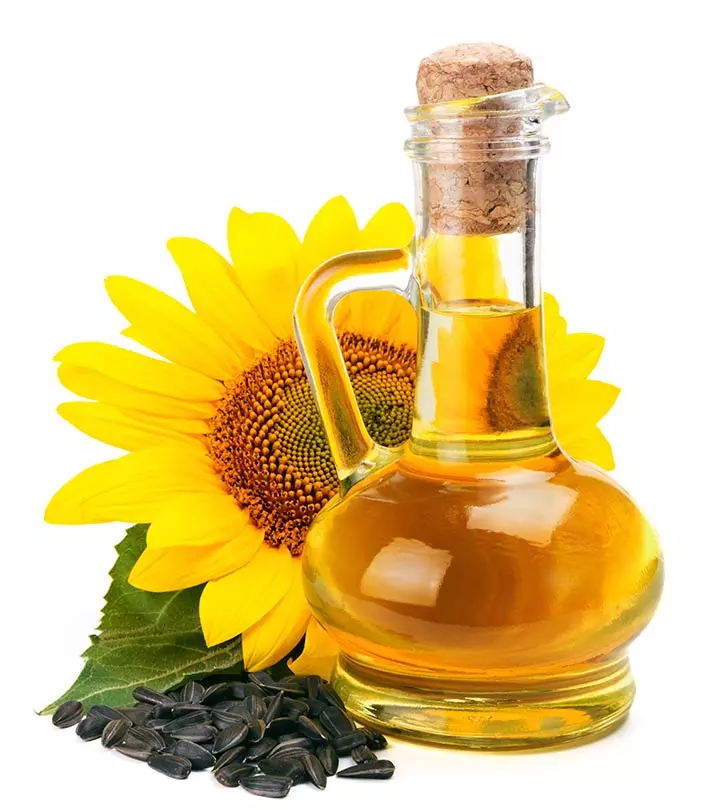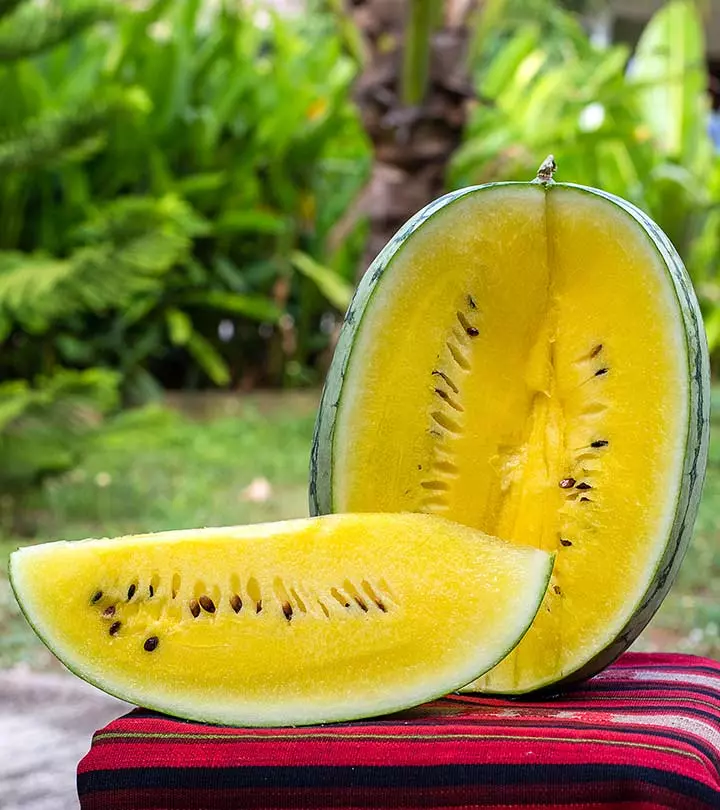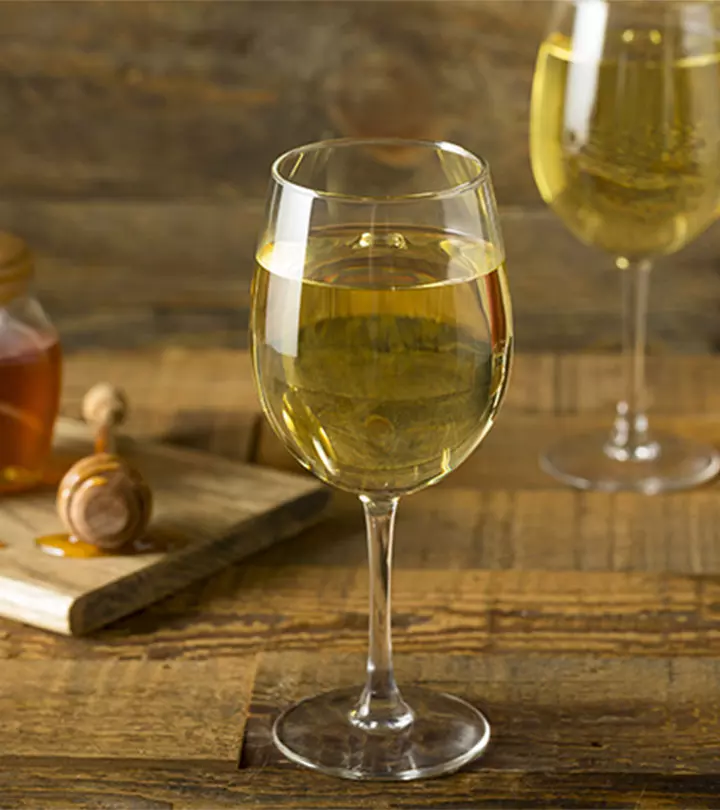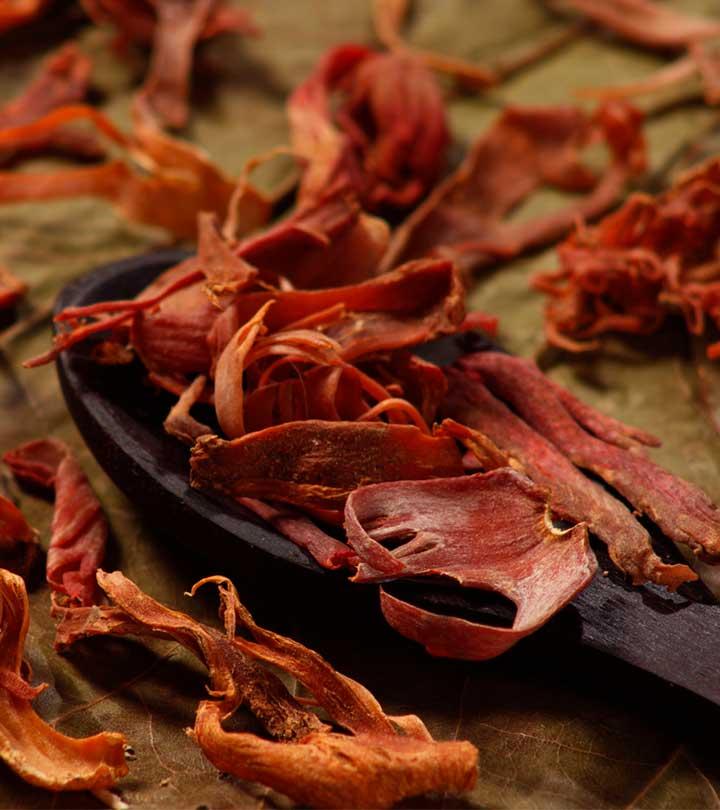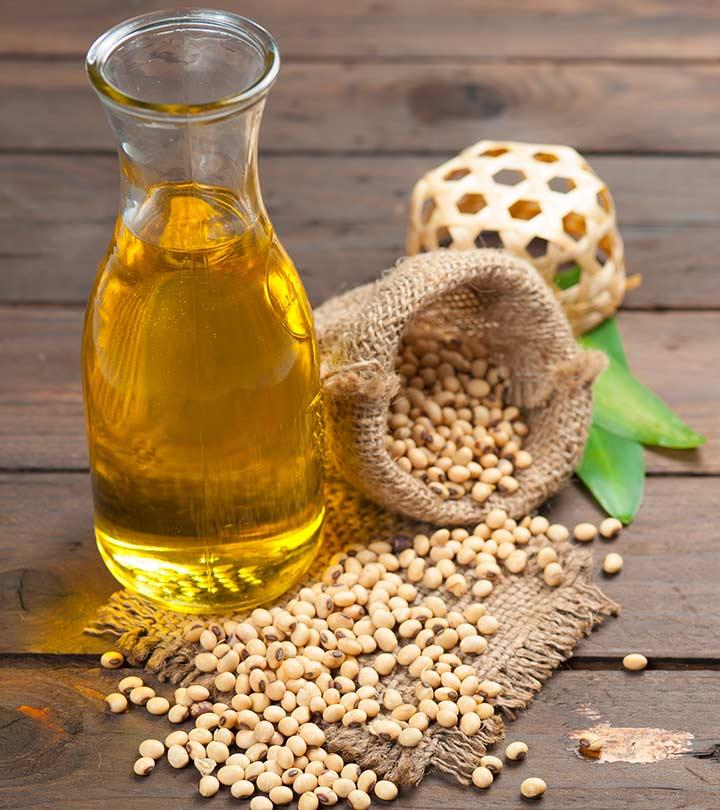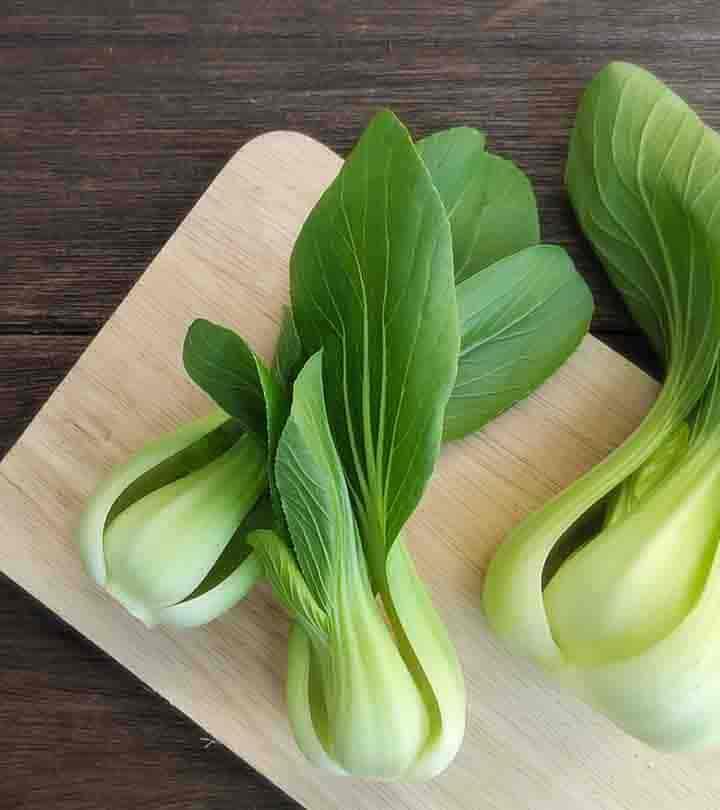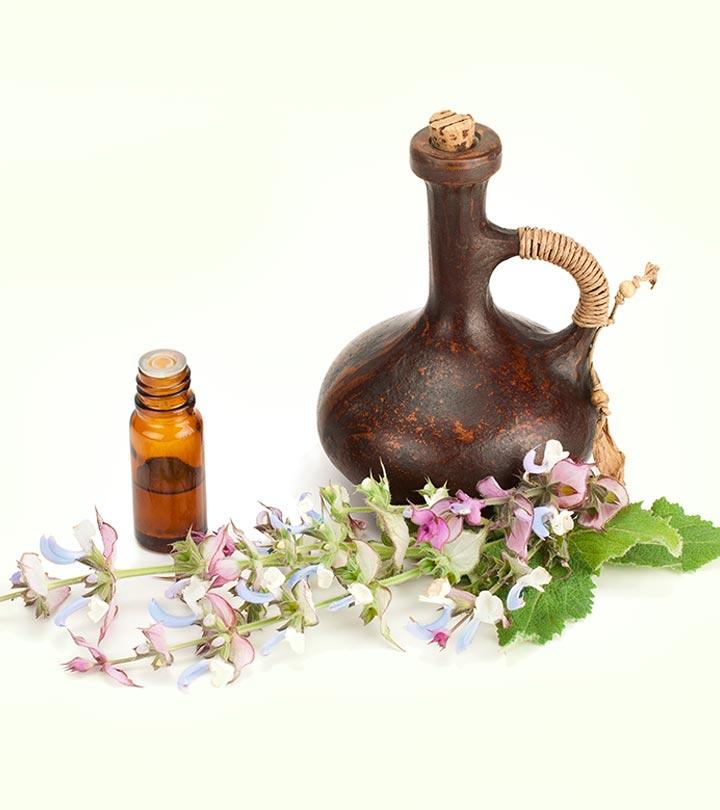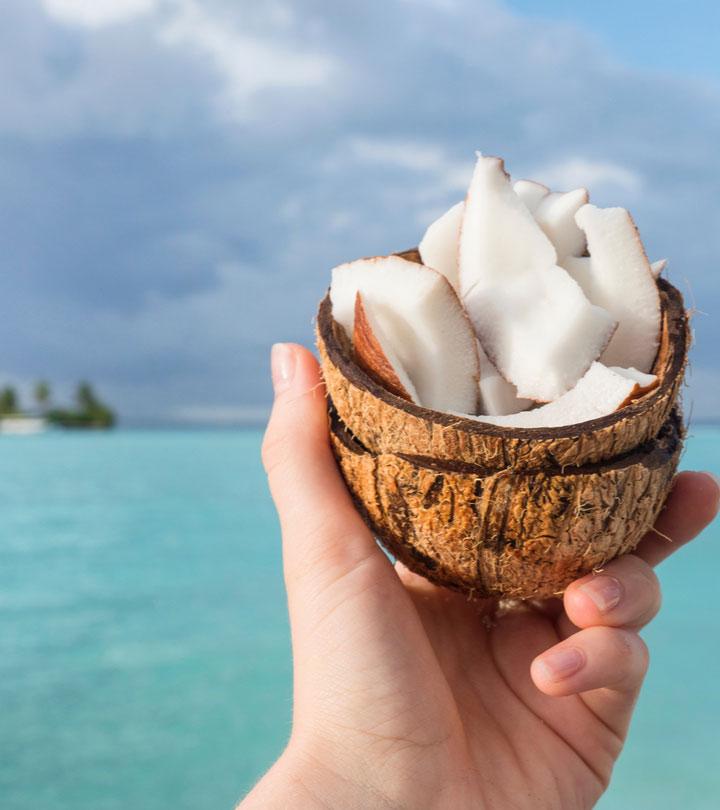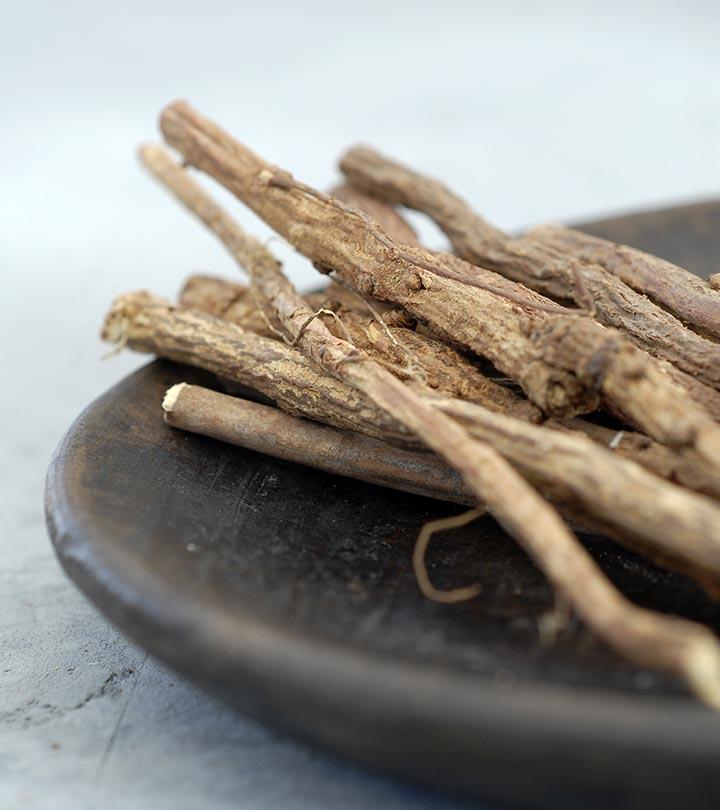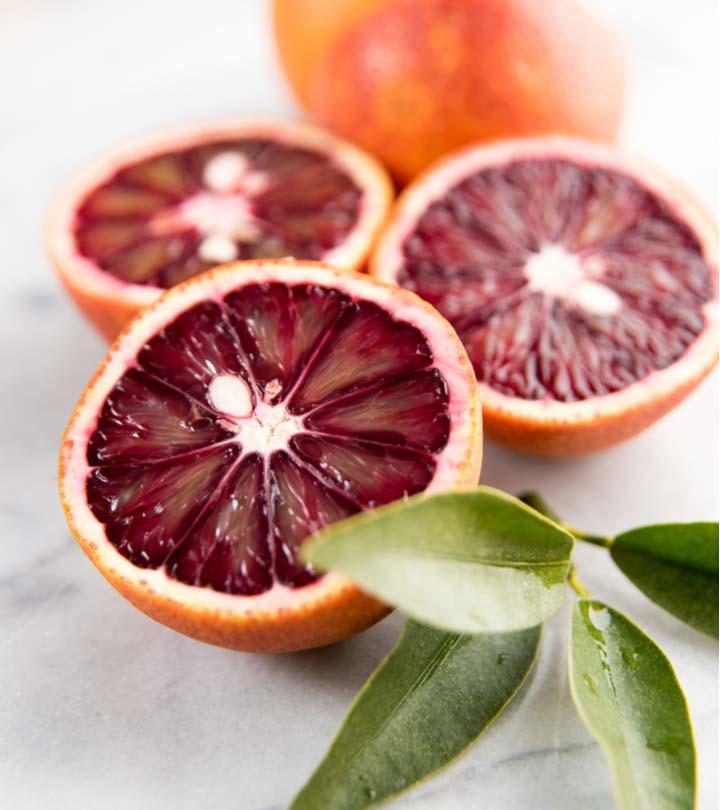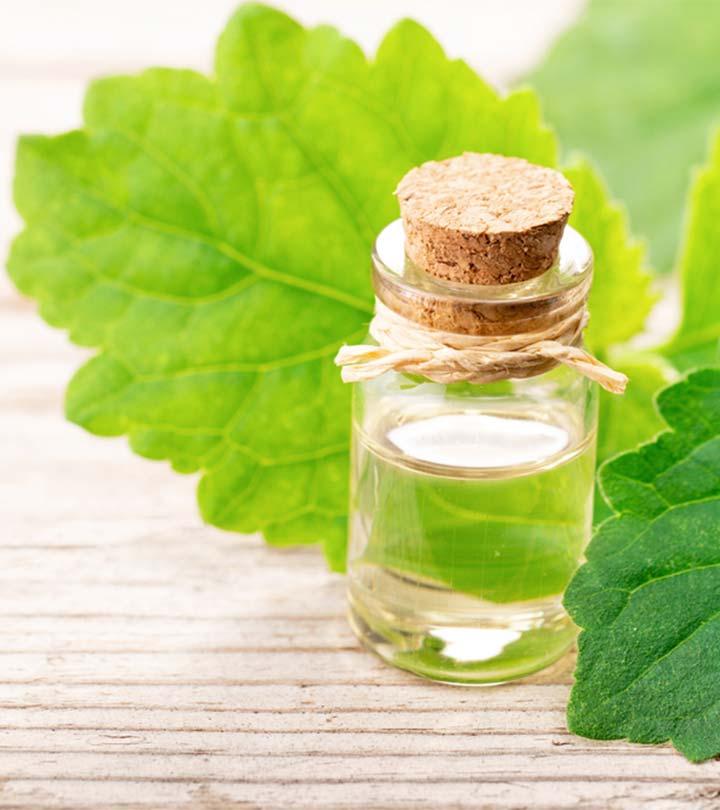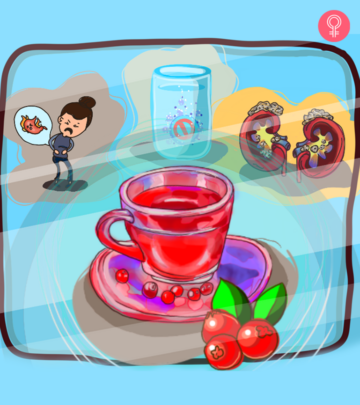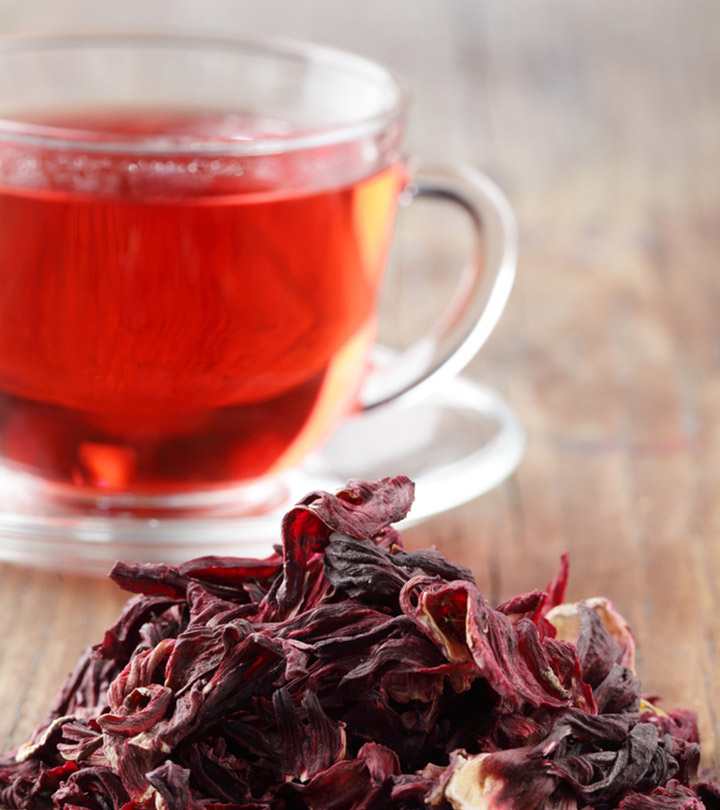21 Amazing Benefits Of Poppy Seeds, Nutrition, & Side Effects
Steer clear of the risk of heart disease while strengthening your bones and muscles.
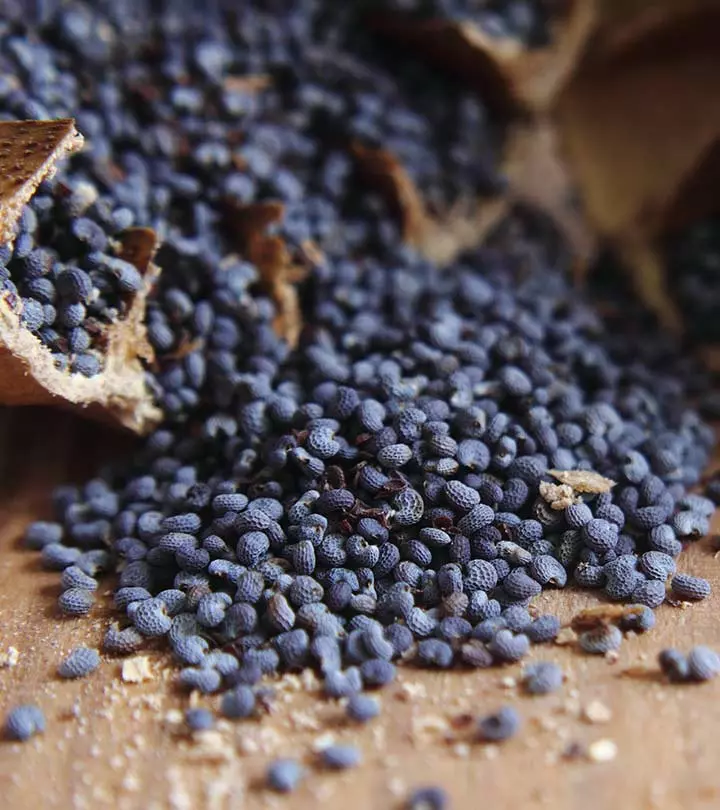
Image: Shutterstock
Poppy seeds are added to many dishes worldwide. These seeds offer various health benefits if consumed regularly. In this article, we will talk about the history of poppy seeds, their nutritional profile, their benefits for skin, hair, and health, how to cook and store them, some recipes, and their potential side effects. Keep reading!
 Know Your Ingredient: Poppy Seed
Know Your Ingredient: Poppy SeedWhat Is It?
A small, black or white, kidney-shaped seed with a sweet and earthy smell.
What Are Its Benefits?
It helps boost fertility and immunity, moisturizes the skin, and improves energy levels and sleep quality.
Who Can Use It?
Anybody can consume it except people allergic to poppy seeds.
How Often?
You can consume one teaspoon of poppy seeds per seven pounds of body weight daily.
Caution
Avoid consuming poppy seeds if you are pregnant or breastfeeding. Overconsumption may cause vomiting, hives, and difficulty breathing.
In This Article
What Are Poppy Seeds?
Also known as ‘khus khus‘ in Hindi, ‘gasagasalu‘ in Telugu, ‘kasa kasa‘ in Tamil, ‘kas kas‘ in Malayalam’, ‘gasegase‘ in Kannada, ‘posto‘ in Bengali, and ‘khush khush‘ in Punjabi, poppy seeds are oilseeds obtained from poppy (which is a flowering plant).
Poppy seeds (scientifically called Papaver somniferum) are widely used in numerous countries, especially in Central Europe, where they are grown and sold in shops. They are used (both in the whole and ground forms) as an ingredient in several dishes. They also are pressed to obtain poppy seed oil.
There are different varieties of poppy seeds. Some of the popular types are:
Blue poppy seeds – Also called European poppy seeds as they are mostly seen on Western breads and in confectionery.
White poppy seeds – Also called Indian or Asian poppy seeds, they are featured in the respective cuisines.
Oriental poppy seeds – Also called opium poppy, this one yields opium and is grown for commercial purposes.
 Did You Know?
Did You Know?That’s about poppy seeds. A brief. But what is so good about them that we are discussing them so much?
Are Poppy Seeds Good For You?
They sure are.
The most important benefit of poppy seeds is the prevention of heart disease. The seeds contain essential fatty acids like linoleic acid, which is an omega-6 fatty acid required for heart health. Please note that excess omega-6 fatty acids can harm your health. Hence, balance is key.
And the iron and phosphorus in the seeds maintain bone health. The two minerals are essential for maintaining the bones and muscles.
Poppy seeds also contain calcium and magnesium that regulate brain activity and aid in the development of neurons. The seeds can also treat sleeplessness.
There are so many other benefits these seeds offer. But before we get there, we want you to take a glimpse into the history of poppy seeds.
What Is The History Of Poppy Seeds?
The seeds have been mentioned in the ancient medieval texts from various civilizations. One such text from the Egyptian civilization refers to poppy seeds as sedatives. Another civilization from the Bronze Age cultivated the seeds for being used in a milk, opium, and honey mixture to calm crying babies. It was used in Eastern medicine to cure diarrhea, dysentery, and anal prolapse.
Even otherwise, poppy seeds have been used for a long time in traditional medicine to aid sleeping and promote fertility – and as legend has it, offer the magical powers of invisibility.
That’s with the brief history. But what fun would it be if we didn’t know what the poppy seeds are made of?
What Is The Nutritional Profile Of Poppy Seeds?
| Principle | Nutrient Value | Percentage of RDA |
|---|---|---|
| Energy | 525 Kcal | 26% |
| Carbohydrates | 28.13 g | 22% |
| Protein | 17.99 g | 32% |
| Total Fat | 41.56 g | 139% |
| Cholesterol | 0 mg | 0% |
| Dietary Fiber | 19.5 g | 51% |
| Vitamins | ||
| Folates | 82 µg | 20% |
| Niacin | 0.896 mg | 5.5% |
| Pantothenic acid | 0.324 mg | 65% |
| Pyridoxine | 0.247 mg | 19% |
| Riboflavin | 0.100 mg | 8% |
| Thiamin | 0.854 mg | 71% |
| Vitamin A | 0 IU | 0% |
| Vitamin C | 1 mg | 2% |
| Vitamin E | 1.77 mg | 12% |
| Vitamin K | 0 mg | 0% |
| Electrolytes | ||
| Sodium | 26 mg | 2% |
| Potassium | 719 mg | 15% |
| Minerals | ||
| Calcium | 1438 mg | 144% |
| Copper | 01.627 mg | 181% |
| Iron | 9.76 mg | 122% |
| Magnesium | 347 mg | 87% |
| Manganese | 6.707 mg | 292% |
| Phosphorus | 870 mg | 124% |
| Selenium | 13.5 µg | 24% |
| Zinc | 7.9 mg | 72% |
And now, we head to what we wanted to head to. The khus khus benefits. Which is the whole purpose of this post.
What Are The Health Benefits Of Poppy Seeds?
Poppy seeds have a wide range of benefits – they act as a cure for sleeplessness and mouth ulcers and enhance digestion. The seeds even improve female fertility to a large extent and can also aid in cancer prevention.
1. Improve Female Fertility
Studies have shown that flushing the fallopian tubes with poppy seed oil can boost fertility. Researchers speculate that the oil can dissolve any debris or mucus in the tubes and increase the chances of fertility. The technique, also called hysterosalpingography, had 40 percent of infertile women in the test group achieve successful pregnancies. Not only that, 29 percent of the infertile women in the group, who had their fallopian tubes infused with poppy seed water, achieved successful pregnancies (1).
Poppy seeds can also enhance sexual health. They contain lignans, compounds known to boost libido and sexual desire.
2. Enhance Digestion
Poppy seeds are sources of insoluble fiber, which can aid digestion. It also increases the bulk of the stool and helps treat constipation (2).
But still, we need more research in this aspect.
3. Reduce Sleeplessness
As per a study, consuming a poppy seed drink decreased the levels of cortisol in the body. This led to a calming effect as the stress levels eventually went down. More interestingly, the circadian rhythms in the test subjects showed a marked improvement. Also, the individuals felt less fatigued.
Amongst poppy seeds, opium poppy is known to be particularly effective in inducing sleep (3). It works by binding to opioid receptors in the body, which mediate its psychoactive effects. But exercise caution while giving it to kids. Consult your doctor before doing so.
You can also take poppy seed tea as a sleep aid before you go to bed. Just make a paste of poppy seeds and mix it with warm milk. Take it before bedtime. One cup of poppy seed tea would do the trick.
4. Reduce Mouth Ulcers
Though there is limited research on this, anecdotal evidence suggests that poppy seeds can help cure mouth ulcers. Poppy seeds are known to have a cooling effect on the body, which plays a role in mouth ulcer treatment.
Simply mix some crushed dry coconut, powdered sugar candy, and ground poppy seeds. Shape it into a pellet and suck on this for instant relief from mouth ulcers.
5. Boost Energy
This property of the seeds can be attributed to their high content of complex carbohydrates – the macronutrientsi Nutrients needed by the body to meet its energy requirements, such as carbohydrates, fat, and proteins. your body needs for energy. The seeds also help absorb calcium, the disruption of which can lead to fatigue.
6. Improve Brain Health
The brain requires essential nutrients like calcium, iron, and copper – minerals that poppy seeds are rich in. These minerals aid in the regulation of neurotransmittersi Chemical messengers in the body that carry signals from one nerve cell to another nerve or muscle cell, or a gland. and enhance brain function.
Poppy seeds might also cut the risk of cognitive disorderi A category of mental health disorders that affect learning, memory, perception, and problem solving. . However, further research is warranted in this aspect.
7. Strengthen Bones
Poppy seeds are rich in calcium and copper. While the former improves bone health, the latter strengthens the bones as well as the connective tissue. Another mineral the seeds are rich in is phosphorus, which, along with calcium, makes up part of the bone tissue. And the manganese in the seeds aids the production of collagen, a protein that protects your bones from severe damage.
8. Regulate Blood Pressure
Jesse Feder, Clinical Dietitian at the Memorial Regional Hospital, says, “Poppy seeds contain certain antioxidants as well as healthy fats that can help control high blood pressure. The antioxidants can help decrease inflammation and radical oxide damage throughout your arteries and heart, which can help decrease your blood pressure. Additionally, healthy fats can help lower your bad cholesterol levels and help reduce plaque buildup in your arteries. This too can help decrease your blood pressure back to healthy levels.”
In addition, the oleic acid in poppy seeds helps lower blood pressure levels.
9. Boost The Immune System
The zinc in poppy seeds can contribute to a strengthened immune system. The seeds also enhance the production of immune cells in the body. And the iron in the seeds also helps in this aspect.
The zinc in the seeds also helps ward off lower respiratory ailments and is thus used in natural remedies.
10. Improve Heart Health
Poppy seeds are loaded with dietary fiber, which helps lower cholesterol levels and ultimately improves heart health. As per a study, the cholesterol content in a food item decreased with a higher amount of poppy seed oil (4). This simply proves that adding the oil to your diet can make it more heart-healthy.
We discussed earlier that poppy seeds contain omega-6 fatty acids and how they can be good for the heart. Additionally, as per a report by Tufts University, the seeds also contain omega-3 fatty acids – popular the world over for their healthful benefits. And one of them is protecting the heart from disease (5). Omega-3s cannot be made in the body, and hence, they must be obtained from external sources. One such great source is a serving of poppy seeds.
11. Aid In Diabetes Treatment
Given that poppy seeds are high in fiber, they could be a preferred addition to a diabetic diet. And the manganese in the seeds might also aid in diabetes treatment.
However, we more research in this aspect. Consult your doctor before you take poppy seeds for this purpose.
12. Promote Vision Health
Poppy seeds are a good source of zinc, and certain studies say the mineral can aid vision health and even prevent serious eye diseases like macular degenerationi An eye condition in which the inner layers of the macula (central section of retina) are damaged, resulting in blurred or reduced vision. (6). The antioxidants in poppy seeds can also benefit the eyes.
13. Prevent Cancer
As per one report published in TIME Magazine, the genes of opium poppies had shown promise in the development of a cancer drug (7). The nutraceutical drug called noscapine (produced from the derivatives of the opium poppy seeds) was found to fight tumors and even shrink the breast and prostate cancer cells. It can also stop cancer cell proliferation.
According to another Indian study, poppy seeds can increase the activity of a carcinogen-detoxifying enzyme called glutathione-S-transferase (GST) by as much as 78%. This activity of poppy seeds, as per the study, is high enough for the food to be considered potent for cancer treatment (8).
The tincture of the poppy plant is said to treat cancerous ulcers (9).
14. Help Treat Kidney Stones
Poppy seeds contain potassium, one mineral known to offer protection against and even treat kidney stones. However, according to a report by the University of Maryland Medical Center, individuals with hyperoxaluria (an excessive urinary excretion of oxalate that increases the risk of calcium oxalate kidney stones) need to limit the amount of poppy seeds in their diet – as the seeds are high in oxalic acid (10).
15. Enhance Thyroid Function
Zinc is one of the minerals the thyroid gland needs for optimal functioning. Poppy seeds can play a vital role in this aspect as they are rich in zinc.
Also, iodinated poppy seed oil has been used in numerous parts of the world to treat iodine deficiency – the cause of thyroid dysfunction (11).
16. Have Analgesic Effects
Since ancient times, the seeds have been used in herbal remedies as an analgesic (for pain management). Even poppy tea (prepared by mixing the seeds in hot water) can offer analgesic benefits as per a health report (12).
The analgesic effects of poppy seeds are especially potent in the opium variety according to a report by Purdue University (13).
Daniel, a YouTuber, discusses the intense euphoria and energy poppy seeds provided as well as the challenges he faced due to its addictive nature. He explains, “You know what, I’m saying anyways the euphoria was very intense and the poppy seeds also seemed to give me this energy. You know, when the effects start to kick in, it just really puts a pep in your step. From that moment on, I was deeply in love [with it] and I never wanted it to end (i).”
What Are The Benefits Of Poppy Seeds For The Skin?
The antioxidants and other essential nutrients in poppy seeds contribute to great skin health. They have an anti-inflammatory action and they moisturize the skin. The seeds also cleanse the skin and give it a glow.
17. Help Treat Eczema And Inflammation
Poppy seeds are effective in treating eczema due to their high content of linolenic acid. Poppy seeds, after being soaked in water or milk, can be ground along with lime juice to form a smooth paste. Applying this paste externally helps in treating burns and skin itchiness. It also acts as an effective painkiller by relieving the pain caused by skin inflammation.
18. Moisturize Skin
A paste made from poppy seeds acts as a good moisturizer, providing you with smooth and soft skin. All you need to do is put some poppy seeds in a food processor and add some milk to it. If you have dry skin, you can also add some honey. Grind into a smooth paste and apply it all over your face. Relax for 10 minutes and then wash off. Doing this once in a week will provide the required moisture to your skin.
19. Help Achieve Clear Skin
A poppy seed scrub can help cleanse your skin, making it look clear and blemish-free. You can prepare a face scrub by mixing 2 teaspoons of poppy seeds with curd. Rub the paste gently on a clean face and neck in circular motions, massaging for 10 minutes. Wipe your face with a cotton ball and wash as usual. This will provide you with clear skin and a glowing complexion.
Do Poppy Seeds Have Any Benefits For Your Hair?
Poppy seeds are a good source of unsaturated fatty acidsi Beneficial fats that can improve blood cholesterol levels and ease inflammation of the skin which helps you maintain healthier hair. as well as minerals like calcium, zinc, and magnesium – all of which contribute to healthy hair.
20. Help Treat Dandruff
Dandruff is a common problem which, if left untreated, can lead to hair loss. For treating dandruff, you can apply a mixture of soaked poppy seeds, hung curd, and a teaspoon of white pepper on the scalp. Leave the mixture on for half an hour and then rinse it off. Regular usage of this pack will significantly reduce the recurrence of dandruff.
21. Stimulate Hair Growth
Although we don’t have enough information in this regard, poppy seeds have shown promise in certain cases. You can prepare a hair pack by blending soaked poppy seeds with freshly extracted coconut milk and pulped onion. Apply the mixture on your scalp and leave it on for about an hour. Rinse with a mild shampoo. Regular usage of this pack can stimulate hair growth.
The same pack might also help treat split ends, although there is very little information on this.
You saw the benefits of poppy seeds. But you also need to know how to select the right seeds, and yes, how to store them.
How To Select And Store Poppy Seeds
- Selection
Proper selection of food items is vital, especially in the present scenario when food adulteration is a common phenomenon. As far as poppy seeds are concerned, several varieties are available that vary in color from ivory to beige, light grey to dark grey, black or bluish, depending on the cultivar type. The European variety called Maw is dark grey, the Indian variety is ivory to beige, while the Turkish variety is tobacco brown.
Poppy seeds are available in both fresh and ground forms. They have a high content of polyunsaturated fats and are vulnerable to oxidation. Hence, they can turn rancid easily. Make sure you buy good quality whole seeds from an authentic store to ensure that they are fresh. They should be tiny and light.
- Storage
The best way to store poppy seeds is to keep them in a cool, dry, dark place in an airtight container. These can stay fresh for up to 6 months. They should be kept away from moisture.
 Trivia
TriviaSo, how do you use these seeds?
Any Tips On How To Use/Cook Poppy Seeds?
Tips On Using Poppy Seeds
- Poppy seeds are used in various cultures to impart their rich nutty flavor to the recipes.
- Before proceeding to use them, clean the seeds properly to remove any stones.
- They should be soaked in warm water or milk for 2 hours.
- Drain them and leave them to dry.
- These soaked seeds can be used alone or ground with other spices to thicken gravies or curries.
Poppy seeds are tasteless, but when heated, they obtain a nutty, spicy-sweet flavor. Roasting or baking makes them smell mild and sweet while deep frying releases special aromatic oils, making them crunchier.
Tips On Cooking With Poppy Seeds (Or Using Them In Recipes)
- Toasted poppy seeds are often used to garnish breads and rolls, ground in sauces and pastry fillings, or added to vegetables and salad dressings. They are widely used in Turkish cuisine.
For toasting the seeds, place them in a small dry skillet and heat them over medium heat, constantly stirring for about 2 to 3 minutes until they turn fragrant.
- Poppy seeds are often added to buttered egg noodles, fruit salad dressings, and yeast breads. Their nutty flavor and texture makes them usable in breads, cakes, pastries, curries, confectionery, and pancakes.
- White poppy seeds are called posto in West Bengal and Bangladesh. These seeds are used as the main ingredient in popular Bengali dishes like Aloo Posto, Chachuri, and Postor Bora. Aloo Posto is prepared by cooking a large amount of ground poppy seeds with potatoes to provide a rich, creamy texture. Potatoes can also be replaced with onions, ridge gourd, chicken or prawns.
- Gasagase Payase is a popular dish in Karnataka. It is basically a liquid dessert prepared with white poppy seeds, jaggery, coconut, and milk.
- In Maharashtra, poppy seeds are used for garnishing a special sweet called anarsa, which is prepared during Diwali.
- Patties made from powdered poppy seeds are often grilled or fried. A rice dish can be prepared by simply mixing uncooked ground poppy seeds with mustard oil, chopped green chili peppers, and rice.
- Poppy seeds cooked with jaggery and coconut are enveloped in a case of a flaky pastry and deep fried to prepare a delicious sweet called karanji.
- In Andhra Pradesh, white poppy seeds paste is used to prepare a masala that is used in preparing exotic dishes with chicken, meat, and vegetables.
- In Austria and Hungary, poppy seeds are used in preparing popular sweet pastry dishes like Strudel and Germknödel.
- It is difficult to grind poppy seeds. A special poppy seed grinder is used for this purpose. But if you do not have it, you can first lightly roast the seeds using a mortar and pestle. These seeds can be used in the whole form or crushed. When using them in uncooked food such as salads, it is advisable to roast them lightly as this enhances their flavor and aroma.
- Ground poppy seeds are widely used in pastries. Before being used in pastries, they should be soaked in boiling water for 1 to 3 hours before grinding.
- These seeds are best when sprinkled over naan bread and cooked in a clay oven known as tandoor.
The tips are great. But the recipes, let us tell you, are even better.
Any Recipes Using Poppy Seeds?
1. Poppy Seed Tea
One easy to way make poppy seed tea is to add the seeds to hot water and drink it (after allowing them to steep for a while). And there is another way to it.
What You Need
- 250 grams of poppy seeds, unwashed
- 3 cups of water
- 2 tablespoons of lemon juice
- An empty 2-liter bottle
Directions
- Using a funnel, pour the poppy seeds into the water bottle.
- Add warm water to the bottle till the level is about 2 inches higher than the seeds. Ensure the water is not boiling.
- Add the lemon juice.
- Close the bottle and gently shake it for about 2 minutes. The color of the water would range from a medium yellow to dark brown.
- Strain the seeds and serve the tea.
2. Poppy Seed Bread
What You Need
- 3 cups of all-purpose flour
- 1 ½ teaspoons of salt
- 1 ½ teaspoons of baking powder
- 3 tablespoons of poppy seeds
- 1 ½ teaspoons of butter-flavored extract
- 1 1/3 cups of vegetable oil
- 3 eggs
- 1 ½ cups of milk
- 2 ¼ cups of white sugar
- 1 ½ teaspoons of vanilla extract
- 1 ½ teaspoons of almond extract
Directions
- Preheat the oven to 350o Grease the bottoms of 2 loaf pans.
- Mix all the ingredients and pour the mixture into the prepared pans.
- Bake at 350o F for an hour. Cool for 5 minutes.
3. Lemon Poppy Seed Muffin
What You Need
- 2 ½ cups of all-purpose flour
- ¼ teaspoon of baking soda
- 1 cup of sugar
- 1 ½ teaspoons of lemon juice and ¼ cup of lemon juice
- 1 stick of unsalted butter
- 1 ¾ teaspoons of baking powder
- 1 teaspoon of coarse salt
- 2 large eggs
- ¼ cup of whole milk
- 3 tablespoons of poppy seeds
Directions
- Preheat oven to 350o Line a 12-muffin tin with baking cups. In a medium bowl, mix the flour, baking powder, baking soda, and salt. In a separate bowl, whisk the remaining ingredients except for the poppy seeds. Stir the wet ingredients into the dry ingredients. Add the butter.
- Evenly divide the batter between the muffin cups. You can also sprinkle additional sugar and poppy seeds.
- Bake until the tops spring back when lightly touched, or for about 20 minutes.
- Cool for 5 minutes in a pan, and then transfer to a wire rack to cool completely.
4. Poppy Seed Cake
What You Need
- 2 teaspoons of baking powder
- ¾ cup of poppy seeds
- 4 large eggs
- 1 cup of granulated sugar
- 1 ⅓ cups of all-purpose flour
- 1 teaspoon of pure almond extract
- 14 tablespoons of unsalted butter
- 1 teaspoon of pure vanilla extract
Directions
- Soak the poppy seeds in half a cup of warm water for an hour.
- Once they are soft, blend the seeds until lightly crushed.
- Preheat oven to 350°F.
- Whisk flour, baking powder, and salt in a bowl.
- Beat the butter with granulated sugar and add it to the flour mix.
- Add poppy seed paste to the mix. Beat it briefly, add the eggs, and mix well.
- Add the vanilla and almond extracts and pour the batter into the pan.
- Bake it for 45 minutes, until the top turns golden.
Are There Any Medicinal Uses Of Poppy Seeds?
Yes. And most of them are similar to the khas khas benefits we have seen. A few other medicinal uses worthy of mention are:
- Alkaloids, like codeine and morphine extracted from the seeds are used in cough medicines and pain relievers.
- The poppy seed extracts are also used in Ayurveda to treat skin diseases.
Talking about procuring the seeds…
Where To Buy Poppy Seeds?
The seeds must be available in your nearest supermarket.
Till now, we saw all that is great about poppy seeds. And now, let’s see the side effects of the seeds – knowing which is equally important.
What Are The Side Effects Of Poppy Seeds?
- Allergies
In some people, poppy seeds can cause allergies. Some of these include vomiting, hives, eye swelling, skin redness, and difficulty in breathing.
- Issues With Pregnancy And Breastfeeding
Though safe in normal amounts, excess consumption of poppy seeds during pregnancy or breastfeeding can cause issues and must be avoided.
Infographic: Poppy Seeds Benefits
Poppy seeds are rich in many plant compounds, minerals, vitamins, and omega fats. These seeds have been used as a traditional remedy for their medicinal properties. From improving heart health to regulating blood pressure, poppy seeds have many health benefits. Click on the infographic below to learn about their important health benefits.

Illustration: StyleCraze Design Team
Poppy seeds, also known as khush khus or posto, are widely used as a spice in many cuisines around the world. While blue poppy seeds are commonly found in European countries, white poppy seeds are popular in Asiatic regions. Rich in omega-3 fatty acids, calcium, magnesium, manganese, poppy seeds not only help improve your cardiac and digestive health, but also help maintain your bones and muscles. Poppy seeds also help treat eczema and calm skin inflammation while stimulating and strengthening your hair follicles as well. While the opium poppy variety can calm stress and improve your sleep patterns, it may not be suitable for children and should be taken under medical guidance.
Frequently Asked Questions
How long are poppy seeds good for?
If kept in the refrigerator in an airtight container, they can last for up to 6 months. They might have a much shorter shelf life if kept outside.
Can babies eat poppy seeds?
No. The opiate levels in poppy seeds can cause complications. It is best to consult a doctor.
Can poppy seeds get you high?
Yes, especially the opium poppy seeds.
What can you use in place of poppy seeds?
Chia seeds are a good substitute.
Can poppy seeds make you fail a drug test?
There are chances. Because heroin and poppy seeds are derived from the same source – the opium poppy.
What is the ideal poppy seed dosage?
One teaspoon of seeds for every 7 pounds of body weight.
Is poppy seed good for weight loss?
Anecdotal evidence suggests that the rich fiber content in poppy seeds may aid in weight loss. However, limited research is available in this regard.
Which is better – white or black poppy seeds?
White poppy seeds have a milder flavor than black poppy seeds and can be used as an excellent substitute for the latter.
Key Takeaways
- Poppy seeds have a high fiber content that may help increase the bulk of the stool to ease constipation and aid digestion.
- A poppy seed drink may exert a calming effect on stress levels and that will in turn make you feel less tired.
- Applying a paste of poppy seeds and milk on the face may help moisturize the skin and improve overall skin health.
- The zinc in poppy seeds may enhance the production of immune cells and ward off lower respiratory ailments.
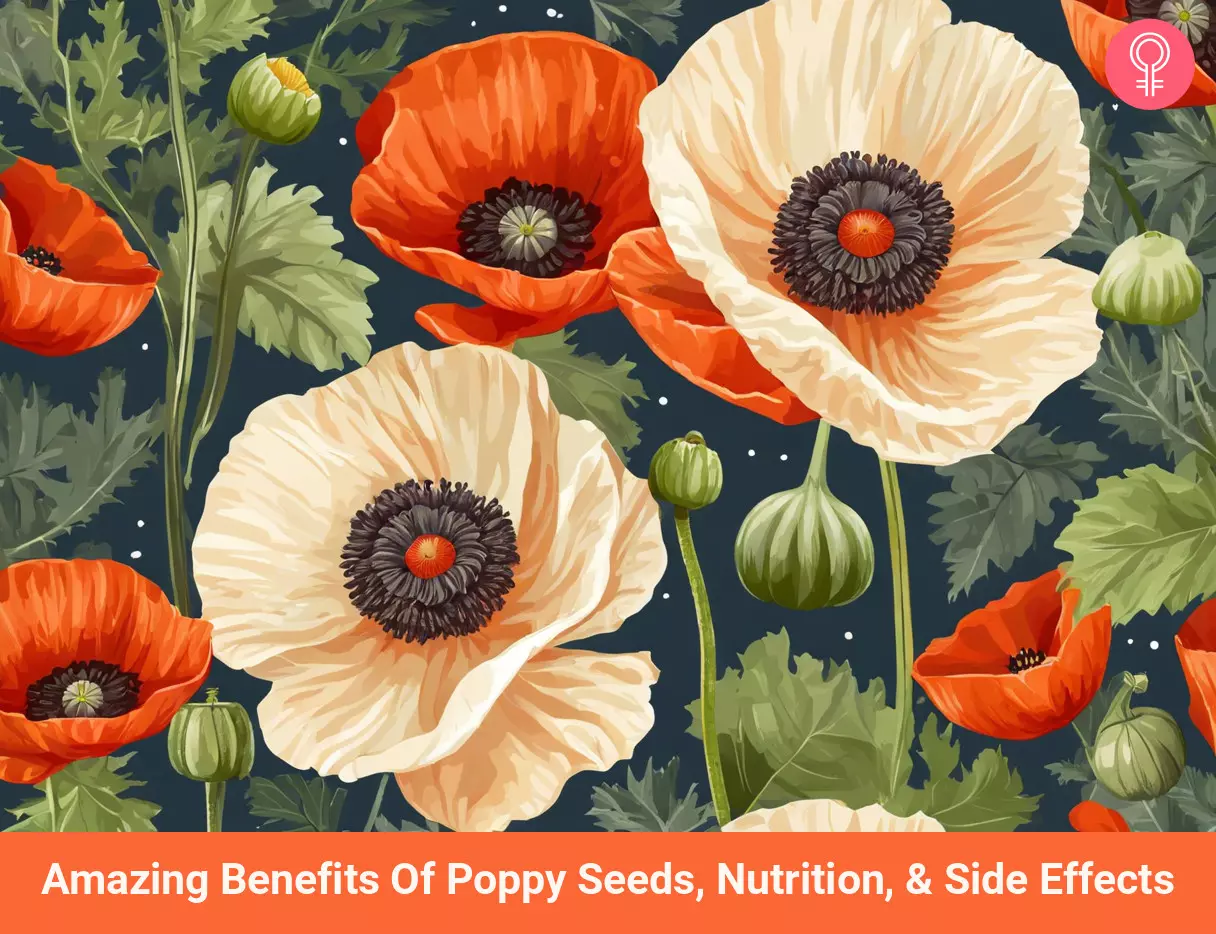
Image: Stable Diffusion/StyleCraze Design Team
From aiding digestion to providing essential nutrients, poppy seeds are powerhouses of health benefits. The video below lists some benefits of poppy seeds that you won’t believe are true. Check it out!
Personal Experience: Source
StyleCraze's articles are interwoven with authentic personal narratives that provide depth and resonance to our content. Below are the sources of the personal accounts referenced in this article.
i. What Is Poppy Seed Tea & What Does It Feel Like?https://www.youtube.com/watch?v=SLAS70AA5gg
References
Articles on StyleCraze are backed by verified information from peer-reviewed and academic research papers, reputed organizations, research institutions, and medical associations to ensure accuracy and relevance. Read our editorial policy to learn more.
- “100-year-old fertility technique reduces need for IVF“. The University of Adelaide. 2017 May.
- “The benefits of fiber“. Emory University.
- “To Cause Sleepe Safe and Shure’: Dangerous Substances, Sleep Medicine and Poison Theories in Early Modern England” US National Library of Medicine.
- “Effect of replacing beef fat with poppy seed oil”. Afyon Kocatepe University, Turkey. 2015 April.
- “Comparative Effects of Dietary Hemp and Poppy Seed Oil on Lipid Metabolism and the Antioxidant Status in Lean and Obese Zucker Rats” US National Library of Medicine.
- “A Potential New Role for Zinc in Age-Related Macular Degeneration through Regulation of Endothelial Fenestration” US National Library of Medicine.
- “Scientists identify opium poppy genes that make promising cancer drug”. TIME. 2012 June.
- “Plant products as protective agents against cancer”. Cancer Institute, Madras, India. 1990 November.
- “Papaver somniferum L.”. Handbook of energy crops. 1983.
- “Kidney stones”. University of Maryland Medical Center.
- “Prevention of micronutrient deficiencies”. The National Academies Press.
- “Opium Tea”. National Drug Intelligence Center. 2010 March.
- “Poppy”. Purdue University.
Read full bio of Alexandra Dusenberry
- Jesse Feder, RDN/LDN, is a Clinical Dietitian at the Memorial Regional Hospital. He is also a certified by the American College of Sports Medicine as a personal trainer (ACSM-CPT) and the National Strength and Conditioning Association as a Certified Strength and Conditioning Specialist (NSCA-CSCS).
 Jesse Feder, RDN/LDN, is a Clinical Dietitian at the Memorial Regional Hospital. He is also a certified by the American College of Sports Medicine as a personal trainer (ACSM-CPT) and the National Strength and Conditioning Association as a Certified Strength and Conditioning Specialist (NSCA-CSCS).
Jesse Feder, RDN/LDN, is a Clinical Dietitian at the Memorial Regional Hospital. He is also a certified by the American College of Sports Medicine as a personal trainer (ACSM-CPT) and the National Strength and Conditioning Association as a Certified Strength and Conditioning Specialist (NSCA-CSCS).
Read full bio of Arshiya Syeda
Read full bio of Sindhu Koganti







